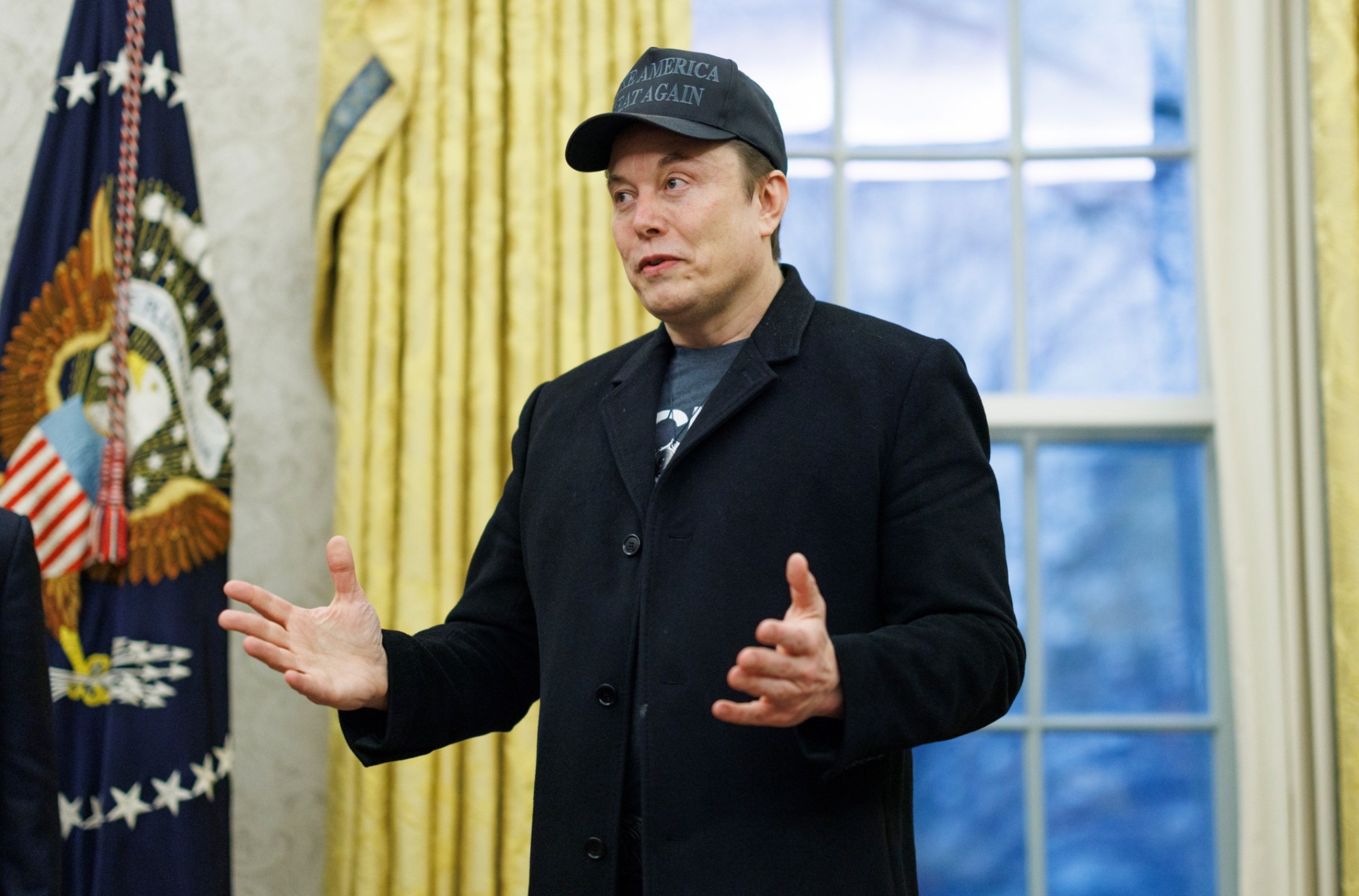lon Musk’s Struggle for Power: A Clash with Trump’s Trade Adviser Over Tariffs
Money can buy a lot of things, but as Elon Musk is learning, it cannot buy you the Oval Office. Despite being one of Donald Trump’s biggest donors and an outspoken supporter during his presidential campaign, Musk’s influence over the Trump administration is proving to be far less than expected. His latest public spat with Trump’s trade adviser, Peter Navarro, highlights the ongoing challenges Musk faces in translating his financial power into meaningful political influence, especially when it comes to issues like tariffs.

A Businessman’s Frustration with Trade Policy
The latest chapter in this drama centers around the new tariffs imposed by Trump’s administration, a move that has rattled many businesses, including Musk’s Tesla. The tariffs affect various industries, and as a businessman, Musk is not exactly thrilled. He understands that his companies, like Tesla and SpaceX, depend on global supply chains and have to deal with the complexities of international trade.
Elon Musk has been vocal about his opposition to tariffs. During a conference in Italy, he called for the elimination of tariffs between Europe and the United States, suggesting that a free trade zone between the two regions would benefit everyone. Musk’s push for zero tariffs is rooted in his belief that free trade fosters innovation and reduces costs, allowing companies like Tesla to thrive.

However, his call for zero tariffs did not sit well with Peter Navarro, the architect of the tariff plan. Navarro, who serves as Trump’s trade adviser, publicly dismissed Musk’s stance, calling him a “car assembler” rather than a true car manufacturer. According to Navarro, Musk’s company, Tesla, relies heavily on foreign-made parts, thus making Tesla more of an assembler than a manufacturer. This comment was a direct attack on Musk’s business model, and Musk was quick to respond.
Musk Fires Back: A Public Twitter Spat
Musk’s response came swiftly on X (formerly Twitter), where he called Navarro’s statement “demonstrably false.” In typical Musk fashion, he didn’t stop there. He went on to post, “Tesla has the most American-made cars,” and further insulted Navarro by calling him “dumber than a sack of bricks.” The public spat between Musk and Navarro quickly became a spectacle, with the White House stepping in to downplay the tension.
In response to the verbal clash, White House officials adopted a dismissive tone, saying, “Boys will be boys,” and implied that the public squabble was just a matter of differing views on trade. They also emphasized that the current administration is the most transparent in history, essentially brushing off the conflict as a minor disagreement between two individuals.
Tesla’s American-Made Cars: Musk’s Defense
While the White House tried to downplay the situation, Musk’s claims about Tesla being the leader in American-made vehicles are backed by evidence. Since 2021, Tesla has topped the American-made index, which ranks vehicles based on where the parts are sourced and where they are assembled. The index repeatedly ranks Tesla as the company with the most American-made cars, making Musk’s defense of his company’s manufacturing practices credible.

Despite this, Tesla is still not immune to the effects of tariffs. Musk has made it clear that he does not want tariffs because they complicate the global supply chain and make it harder for his companies to operate efficiently. While Musk did appeal directly to Trump, asking him to reconsider the tariffs, it seems that his influence over the president is limited.
The Delicate Dance with Trump
Musk’s situation is a delicate one. He clearly wants to maintain a relationship with Trump and remain in his good graces, but at the same time, he must also navigate the challenges of running a business in a global economy that relies on open trade. Musk’s decision to take aim at Navarro instead of Trump shows his careful balancing act. He knows that directly attacking Trump could jeopardize his position, so he has chosen a more manageable target in Navarro.
This strategic move highlights a key lesson Musk is learning: real power does not come from donations or public support alone. It comes from policy and politics. While Musk’s financial contributions and public endorsements may have helped him gain some access, they do not guarantee him influence where it truly matters—inside the corridors of power.
Money Can’t Buy Everything
Ultimately, the conflict between Musk and Navarro serves as a reminder that money can buy you a platform, a rocket company, or even a social media platform, but it cannot always buy you a seat at the table when it comes to real political power. Musk’s desire to shape policy and influence trade decisions reveals the limitations of wealth in a political system that is driven by power dynamics, not just financial contributions.
As Musk continues to push for zero tariffs and fight against policies that he believes hurt his business, he will have to come to terms with the fact that his influence on Trump’s administration is not as powerful as he once hoped. For now, Musk remains outside the Oval Office, knocking but not commanding. In the end, it seems that while Musk may have access to the world’s most powerful platform, the real power lies with the politicians who make the laws.